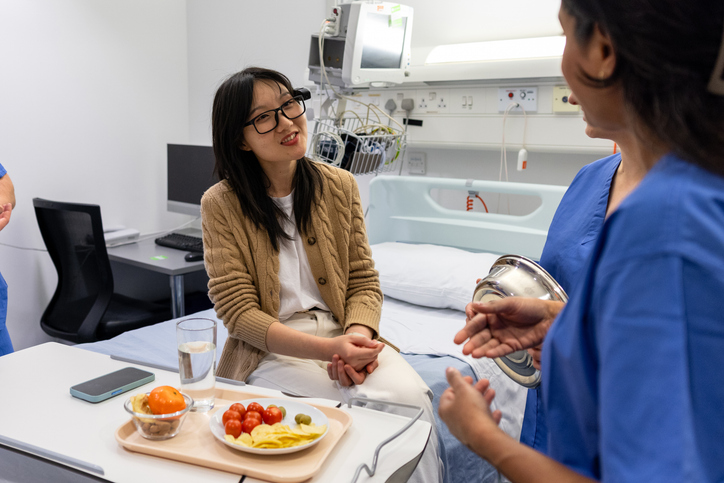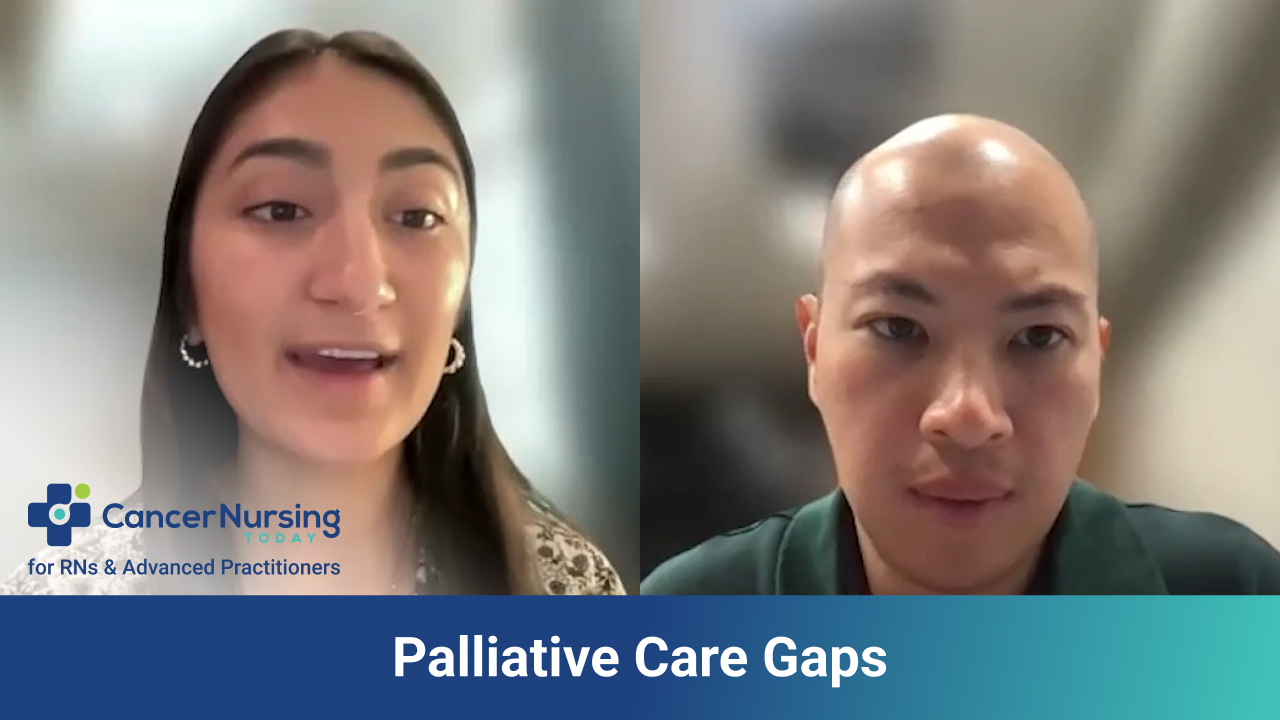Martha Raymond, MA, the CEO of the GI Cancers Alliance, discusses the brand-new Collective Action Roadmap for GI Cancers.
GI Cancer
Read the most current news and learn about the latest research developments in gastrointestinal (GI) cancer. Cancer Nursing Today provides the latest clinical findings and perspectives on GI cancers, including liver cancer immunotherapy, risk-prediction models, the link between diet and colorectal cancer, and more. From radiotherapy and chemotherapy to the role of screening in early detection, learn how GI cancer care and research are moving forward.
Advertisement
Less than one-third of eligible people within one regional academic health system had a screening test ordered.
Researchers hypothesized that earlier palliative care referral would mitigate patient symptom burden.
If a symptom was reported by a patient as moderate or severe, an algorithm-based system generated an alert notification.
The effectiveness of a multidomain intervention on patients' mental and physical health post-esophagectomy was explored.
APP-First was created to assist in testing completion and referrals before a new patient meets with a surgical oncologist.
The ODYSSEY trial is comparing quality of life with combination IO treatments in real-world settings versus clinical trials.
Learn more about how disparities among patients with metastatic renal cancer have influenced mortality rates.
Learn how mindfulness and familial nutritional support can improve outcomes for patients with gastrointestinal tumors.
The study explored the effects of a nurse-led intervention called mHealth on factors such as nutritional status and intake.
Nurses can help couples communicate by identifying barriers to disclosure and offering a personalized approach.
Trending
Studying for certification tests can be intimidating. Here are some essential tips to help you do your best.
These tips are important resources for oncology nurses who are recent graduates and experienced nurses new to this specialty.
With the shift in cancer care to the ambulatory care setting, a dedicated oncology nurse educator is a key asset to nurses.
Gastroparesis occurs in 60% of patients with advanced pancreatic cancer, and is frequently overlooked in upper GI tumors.
More unique, non-traditional jobs are emerging for oncology nurses to consider outside traditional positions.
Alkaline phosphatase may serve as a discriminating marker in detecting bone lesions in patients with multiple myeloma.





















 © 2025 Mashup Media, LLC, a Formedics Property. All Rights Reserved.
© 2025 Mashup Media, LLC, a Formedics Property. All Rights Reserved.